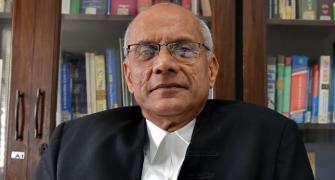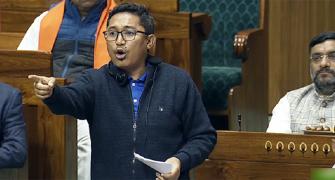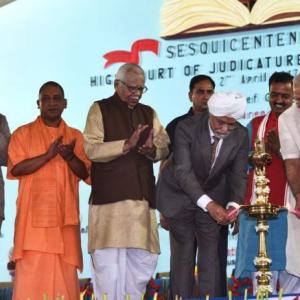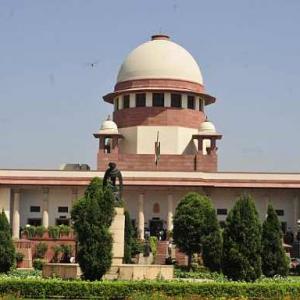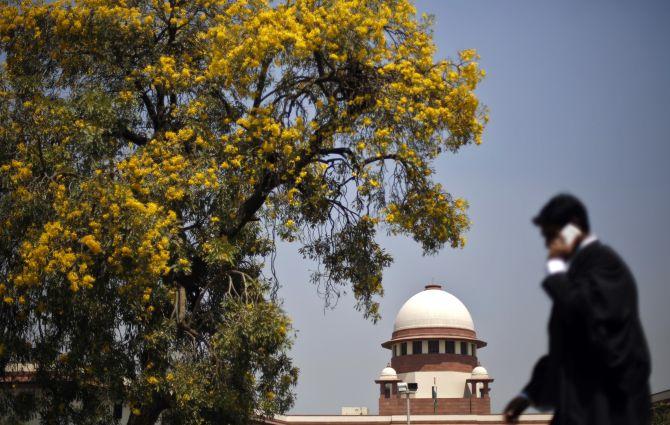
The Supreme Court on Wednesday held that the office of the Chief Justice of India is a public authority and falls within the ambit of the Right to Information Act.
Following is the chronology of events in the case in which a five-judge Constitution Bench of the SC upheld the 2010 Delhi high court verdict which said that the office of the Chief Justice of India falls under the ambit of RTI Act.
November 11, 2007: RTI activist Subhash C Aggarwal files a plea in the Supreme Court seeking information on judges' assets.
Nov 30: Information denied in the reply to him.
December 8: First appeal filed at SC's registry against the denial of information.
January 12, 2008: First appeal dismissed by SC's registry.
March 5: Aggarwal approaches Chief Information Commissioner.
Jan 6, 2009: CIC asks SC to disclose information on Judges' assets on the ground that CJI's office comes within the ambit of RTI Act.
Jan 17: SC moves Delhi HC against CIC order.
Jan 19: The Delhi high court stays CIC order; asks constitutional expert Fali S Nariman to assist it in deciding the legal issue. Nariman declines saying he is of the view that Judges must declare their assets and he would not be able to be impartial in the case.
February 26: SC says that declaration of assets by its judges to the Chief Justice are 'personal' information which cannot be revealed under the RTI Act.
Mar 17: SC says its judges not averse to declaring their assets and Parliament can enact a law pertaining to such declaration but it must be ensured that the law is not misused.
Mar 24: HC says that Judges cannot be treated like politicians on asset declaration.
May 1: Delhi high court Bar Association moves impleadment application in HC saying that Judges should voluntarily declare assets.
May 4: SC says too much transparency can affect independence of judiciary.
May 4: HC reserves order on SC plea.
Sep 2: Single Bench of High Court upholds CIC's order saying that CJI's office comes within the ambit of RTI Act and judges' assets be made public under the transparency law.
October 5: The Apex Court challenges single bench verdict before division bench.
Oct 6: HC agrees to give an urgent hearing to the Supreme Court's petition.
Oct 7: HC admits the appeal and constitutes a special three-judge bench to decide the issue.
Nov 12: HC observes that the resolution passed by the Supreme Court judges for declaring their assets to CJI is binding on them.
Nov 13: HC reserves judgment on the appeal.
Jan 12, 2010: HC says the office of CJI comes within the ambit of the RTI Act.
Nov 26: Secretary General of SC and Chief Public Information Officer file 3 appeals against the HC and CIC orders.
August 17, 2016: SC refers the matter to a Constitution bench
April 4, 2019: SC reserves verdict on whether CJI's office is public authority under RTI Act
Nov 13: SC upholds 2010 Delhi High Court verdict, holds office of the Chief Justice of India is a public authority and falls within the ambit of RTI.



